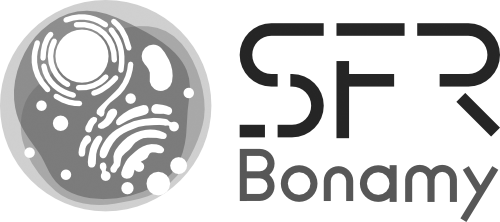Roles
The Bonamy Federative Research Structure (SFR) brings together all the research structures and the technological facilities in the field of biology and health in Nantes. It manages and participates in the development of the site's technological facilities, in particular those labelled IBiSA and/or Biogenouest.
FACILITATE communication and interactions

Externally:
The SFR board represents the scientific community in different governing body:- Scientific Council of the Nantes University Health Center
- The Standing Committee of the Pole Council (C2P2)
- The Health department Surfaces Monitoring Committee (CT3S)
- The Biomedical and Public Health Research Committee (CRBSP) of the Nantes University Hospital
- Biogenouest, an interregional network of technological facilities in life and environmental sciences
- Pays de la Loire region
Internally:
- SFR Councils bringing together the managers of all the partners (5 times a year)
- Internal mailing list : relays of events, training, product searches and job offers.
STRUCTURE technological development
- Lead the platform network via platform commissions (5 times a year)
- Manage the purchase of heavy equipment (CPER, FEDER, LOIRE income tax, BGO)
- Pooling requests for equipment and human resources
- Harmonize the pricing policy of the platforms
- Assist in the acquisition of cutting-edge technologies
- Advising platforms in their structuring
- Facilitate interdisciplinary researches
SFR call for proposals:
- Call for proposal for technological development between research laboratories and technological facility
- Call for proposal for equipment co-funding
- Funding for exceptional requests
PROMOTE responsible research

The Bonamy SFR encourages the development of a responsible research common culture in order to improve the quality of our research. It has committed to carrying out / relaying projects on the 6 themes of responsible research (described in french):
DIFFUSE scientific knowledges
- Monthly seminars to bring new knowledges to the community
- O'Tablo to popularize a research project or a technology
- Scientific and technical culture to inform the community of the various actions carried out in the territory
Internal Funding :
-
Annual call for contributions to the financing of symposium / seminars
Updated on 27 August 2024.





